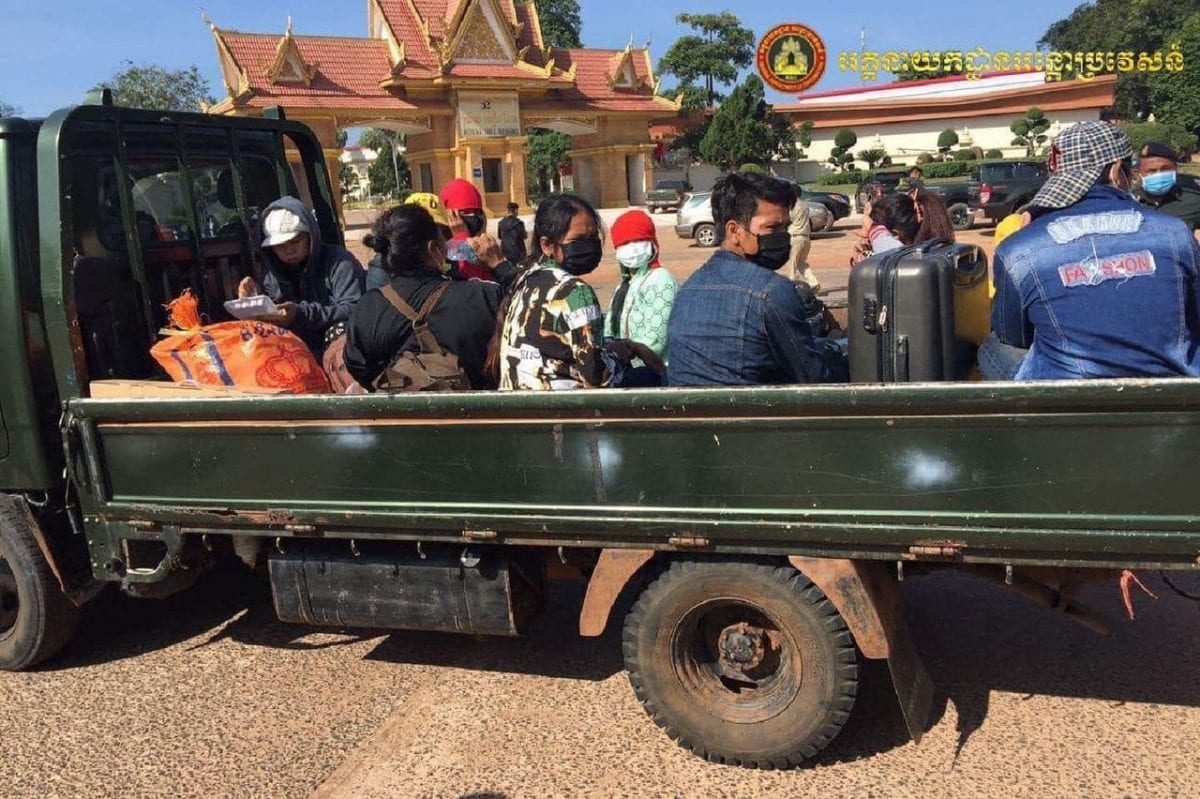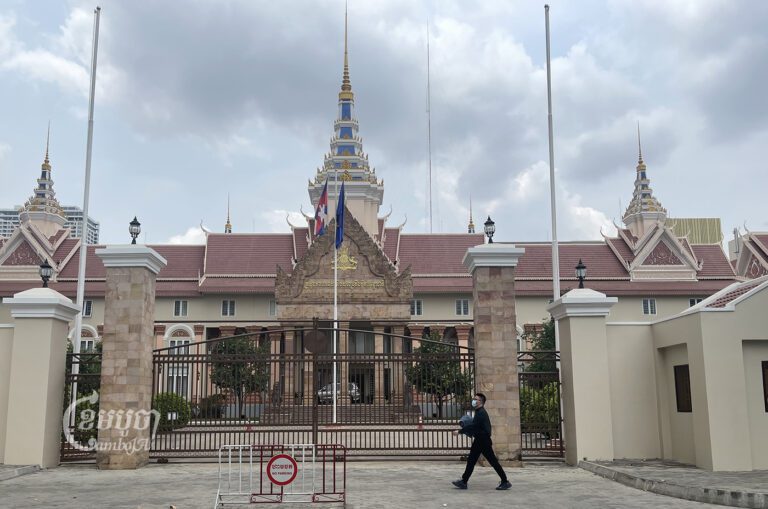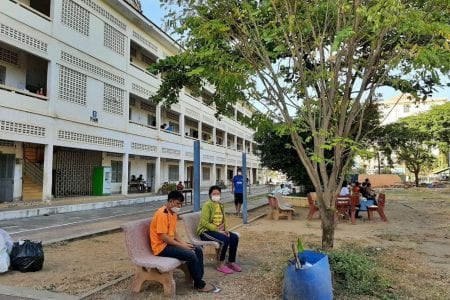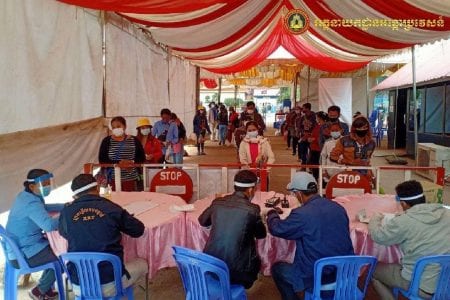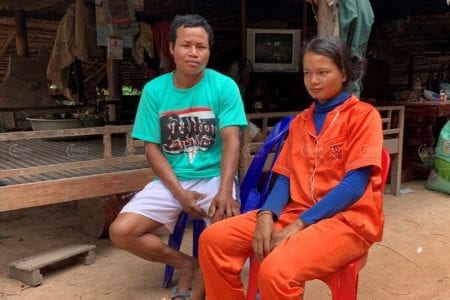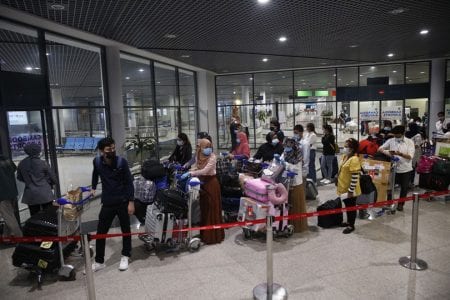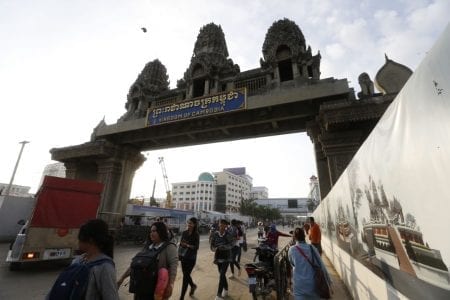Prime Minister Hun Sen has asked Cambodian migrant workers to remain in Thailand or to prepare for 14 days of quarantine on return, after a new COVID-19 outbreak in the neighboring country’s Samut Sakhon province.
Thailand has reported more than 500 new cases of the novel coronavirus in the southern province of Samut Sakhon, after which Cambodian officials beefed up surveillance along the western border for returning migrant workers.
Hun Sen took to his Facebook page on Sunday and asked Cambodian migrant workers in Thailand to trust Thai officials’ ability to control the spread of the virus, and that they will be sent directly to quarantine for 14 days if they were to return.
“I hope that Cambodian workers working in Thailand believe the capacity of Thai authorities and they should not return from Thailand, in case Thailand is in a difficult situation,” said Hun Sen.
Hun Sen said the government had deployed 70 military trucks to transport Cambodians returning from Thailand to available quarantine centers, in case centers were burdened by a sudden surge of people at the three main border crossings at O’Smach, Doung and Poipet.
“So, armed forces need to respond and transport the people; and they need to cooperate with the provinces along the border, with police and military police officials,” said Hun Sen.
Hun Sen warned workers against using illegal border crossings to return to the country, ordering officials from border provinces to tighten their security presence. He said Health Minister Mam Bunheng and Interior Minister Sar Kheng were preparing quarantine centers and had already disbursed $12,500 to each province.
The Health Ministry’s statement issued on Sunday reminding Cambodian workers about Samut Sakhon’s curfew which is from 10 p.m. to 5 a.m. from December 20 to January 3, 2021.
“I order the Health Ministry that besides sending [province’s] a budget, the Health Ministry must send face masks to the provinces,” Hun Sen said.
Hun Sen said that Cambodia had already experienced the return of around 120,000 migrant workers from Thailand during the first wave of the pandemic in the region. At the time, workers were made to quarantine at their homes and provincial officials were expected to conduct routine health checks.
Cambodian census figures estimate at least 1.1 million Cambodians working in Thailand, revealing that around 10 percent of migrant workers returned in March and April.
Ly Sovannarith, O’Chrov district governor in Banteay Meanchey province, said, on average, around 200 Cambodian migrant workers return to Cambodia every day at the O’Bei Choan International Checkpoint.
“On [Sunday], there were nearly 200 Cambodian workers returned to Cambodia,” Sovannarith said. “Now 100 percent of all workers returning to Cambodia must quarantine for 14 days.”
He said there were five military trucks that arrived at the checkpoint on Monday to transport workers to quarantine centers and that border officials had been briefed on testing procedures for returning workers.
Soeum Bunrith, deputy governor for Battambang province, said that three quarantine locations had been prepared for the returning workers, which currently was around 50 workers a day. Thirty military tucks had arrived at the Doung International Checkpoint, he added.
“We asked all district governors [in Battambang] to discuss with Thai authorities and help facilitate Cambodian workers to cross only through the Doung checkpoint,” said Bunrith.
Dy Rado, deputy governor for Oddar Meanchey province, said that since March 47,683 workers had returned to Cambodia across O’Smach International Checkpoint.
Dy Thehoya, a program officer at labor rights group Center for Alliance of Labor and Human Rights, said most foreign migrant workers who were in Samut Sakhon were Burmese nationals, and that only a small number of Cambodian workers were in the southern Thai province.
Thehoya said it was advisable for Cambodian migrant workers to not venture out and stay in their homes or go to their workplace.
“When they return to Cambodia, the displacement is an opportunity to get infected with the disease and when they come back there is a high opportunity for transmission,” said Theyoha.


